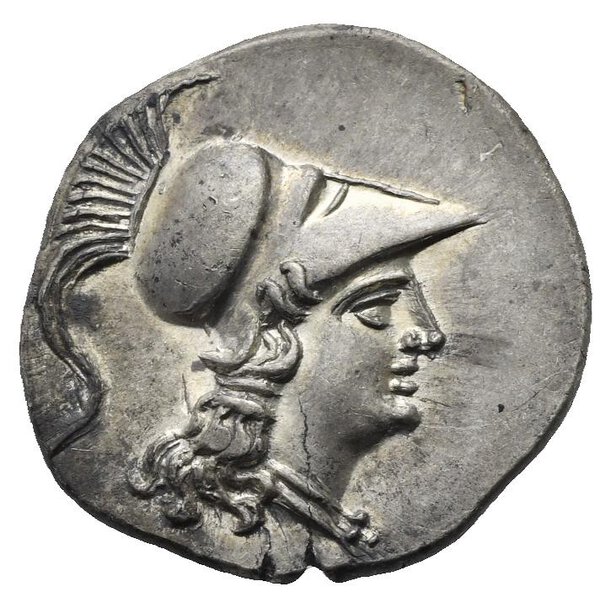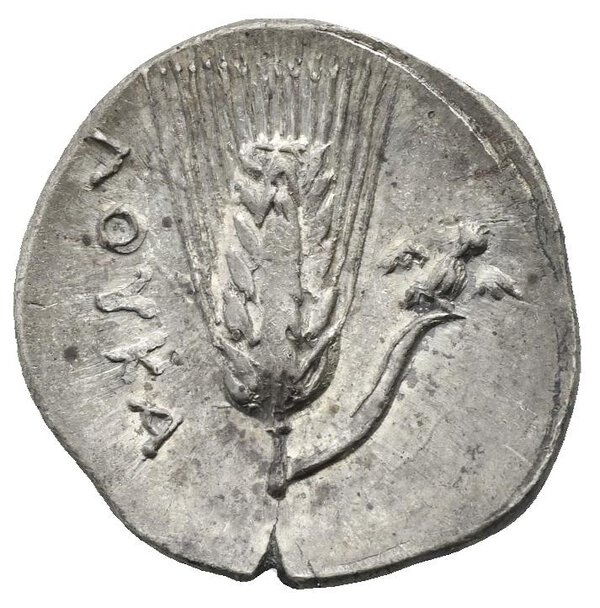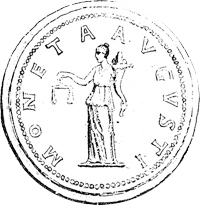

Lucania. The Lucanians, Punic occupation. Circa 209-207 BC. Half Shekel (Silver, 1.94 mm, 3.50 g). Head of Athena right, wearing Corinthian helmet. Rev. ΛΟΥΚΑ, ear of grain with leaf to right, on which owl perches. HN Italy 1449 (unique); Scheu 10 (same). Lightly toned, with underlying lustre. Slight flan crack and minor flattening on reverse, otherwise, Good Extremely Fine. Exceedingly rare, with only one other specimen known.
From a Swiss collection, formed before 2005.
The Lucanians were an Italic people speaking Oscan who settled in the central Apennines around 400 BC, south of the Samnites. Their region roughly corresponds to modern-day Basilicata. During the 4th century BC, they frequently threatened the Greek colonies in southern Italy and, in 290 BC, allied with the Romans against the Samnites. However, they later supported Pyrrhus against Rome itself. During the Hannibalic period— the only time they minted coins— the Lucanians likely hoped to achieve definitive revenge against Rome. Yet, when Hannibal withdrew from Italy in 203 BC, the Lucanians were left to face their fate alone.


